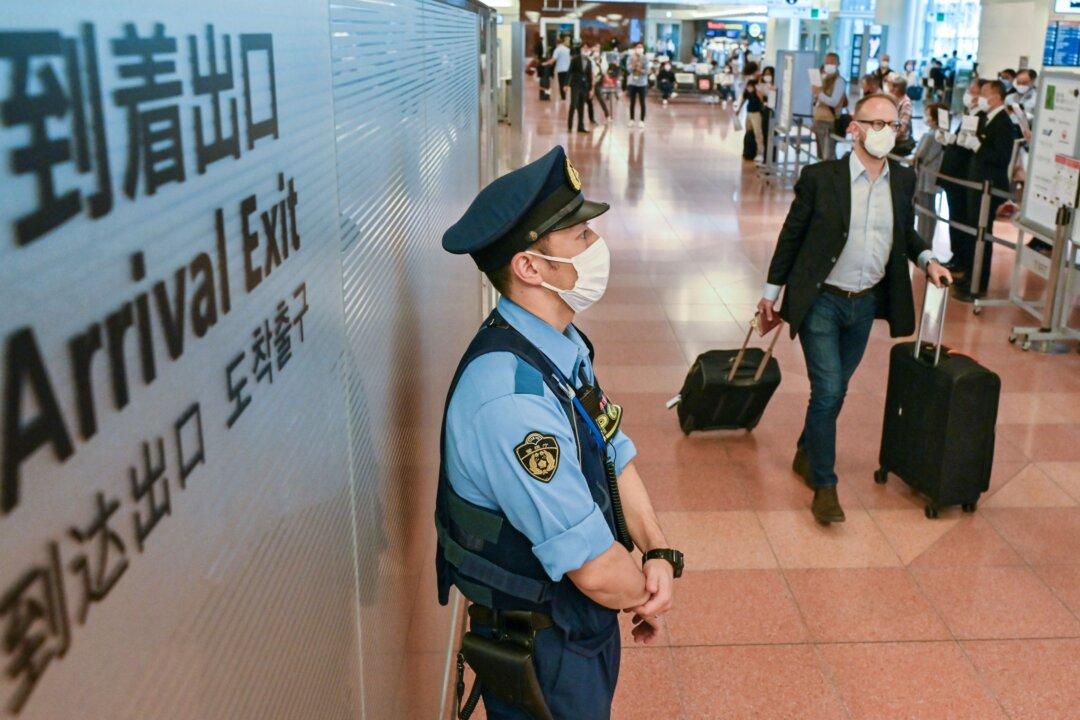Japan is the latest country to tighten border controls for people who have visited mainland China, as the communist regime removes cross-border traveling restrictions despite a COVID-19 outbreak sweeping across the country.
Starting from midnight on Dec. 30, travelers from mainland China are required to present a negative COVID test result upon arrival, Japanese Prime Minister Fumio Kishida said on Dec. 27.




